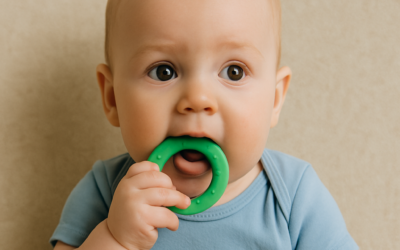As a new parent, one of your first questions might be: how much do newborns sleep? Understanding your baby’s sleep patterns can alleviate anxiety and help you better manage your own rest. Newborn sleep hours can vary significantly, typically averaging around 16-18 hours daily, spread across numerous short naps and nighttime sleep. Recognizing normal newborn sleep patterns can reassure parents and support better planning of daily routines.
In the early weeks, infant sleep needs are extensive but fragmented, often confusing new parents who expect longer stretches of rest. While newborns sleep frequently, their rest comes in intervals ranging from 30 minutes to 3 hours. This unpredictability is natural and essential for their rapid growth and brain development. As your baby grows, understanding these shifting sleep patterns will help you establish a healthy baby sleep schedule, ensuring better sleep for both you and your infant.
Typical Newborn Sleep Patterns: What to Expect
Newborn Sleep Hours by Age
- 0-2 weeks: Approximately 16-18 hours/day, irregular intervals
- 2-4 weeks: About 15-17 hours/day, slightly longer nighttime stretches
- 1-2 months: 14-17 hours/day, clearer differentiation between day and night
How Often Should Newborns Sleep?
Newborns typically sleep in short intervals, waking frequently for feeding. Expect about 8-12 sleep sessions per day, each lasting between 30 minutes to a few hours.
Factors Influencing Infant Sleep Needs
Several factors influence your newborn’s sleep schedule, including:
- Feeding needs: Newborns wake frequently due to small stomach capacities.
- Comfort: Temperature, clothing, and diaper conditions significantly affect sleep quality.
- Developmental stages: Growth spurts and developmental milestones can temporarily alter sleep patterns.
Common Questions About Newborn Sleep
Why Does My Newborn Wake Frequently?
Frequent waking is typical in newborns due to their feeding schedule and shorter sleep cycles. Newborn sleep patterns are naturally fragmented to accommodate their developmental and nutritional needs.
When Do Newborns Start Sleeping Longer at Night?
By about 3-4 months, many babies begin consolidating sleep at night, gradually increasing their nighttime sleep duration.
Tips for Establishing a Healthy Baby Sleep Schedule
Creating a consistent sleep routine can greatly benefit your newborn’s sleep quality:
- Create a bedtime ritual: Bath, feeding, and gentle rocking.
- Encourage daytime wakefulness: Engage your baby gently during awake periods to promote better night sleep.
- Monitor sleep cues: Look for signs such as yawning or fussiness.
Safe Sleep Practices for Newborns
Ensuring your baby sleeps safely is crucial:
- Place your baby on their back to sleep.
- Use a firm, flat mattress with a fitted sheet.
- Keep the sleep environment clear of loose bedding and toys.
When to Seek Advice About Your Newborn’s Sleep
Contact your healthcare provider if you notice:
- Consistent difficulty waking your baby for feeding
- Significant deviations from typical newborn sleep hours
- Persistent fussiness or discomfort during sleep
Expert Recommendations on Newborn Sleep
Pediatricians typically advise that understanding infant sleep needs involves recognizing variability and focusing on safe sleep environments rather than trying to impose strict schedules too early.
Conclusion: Navigating Newborn Sleep Confidently
Understanding how much do newborns sleep can help parents set realistic expectations and foster a healthier sleep routine. While newborn sleep patterns initially seem erratic, knowing typical sleep durations, practicing safe sleep guidelines, and creating comforting routines can lead to more restful days and nights for everyone.




